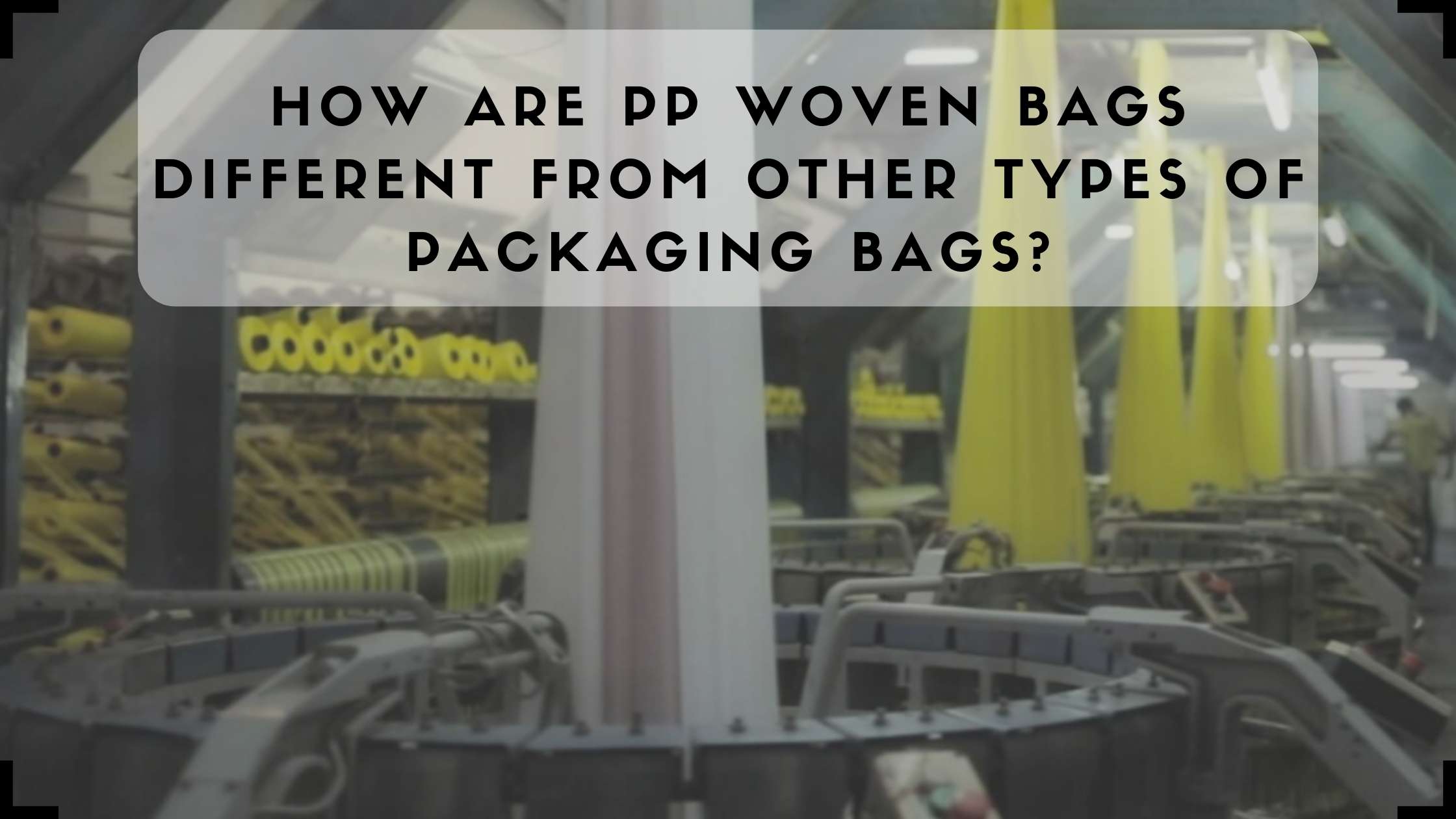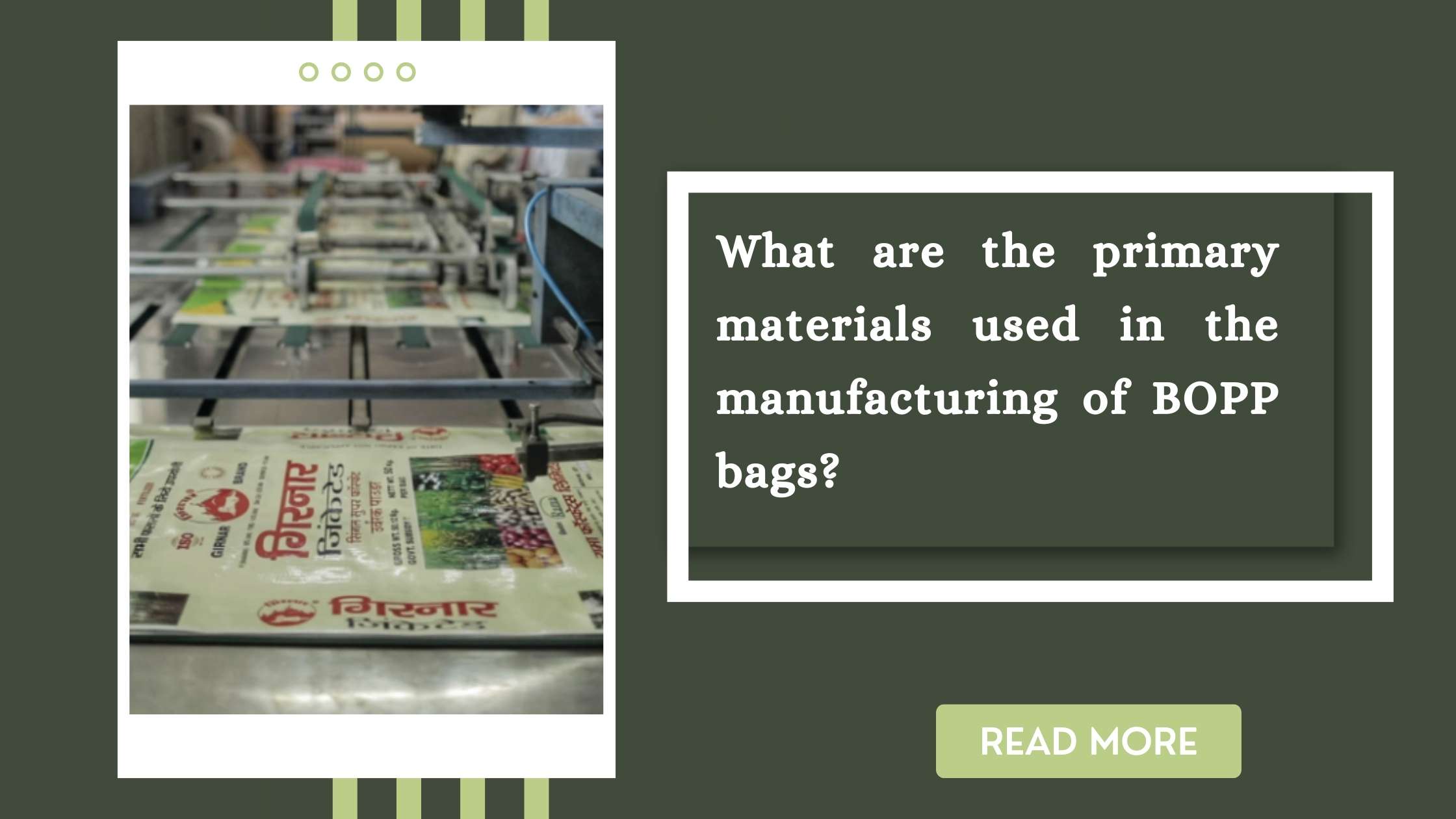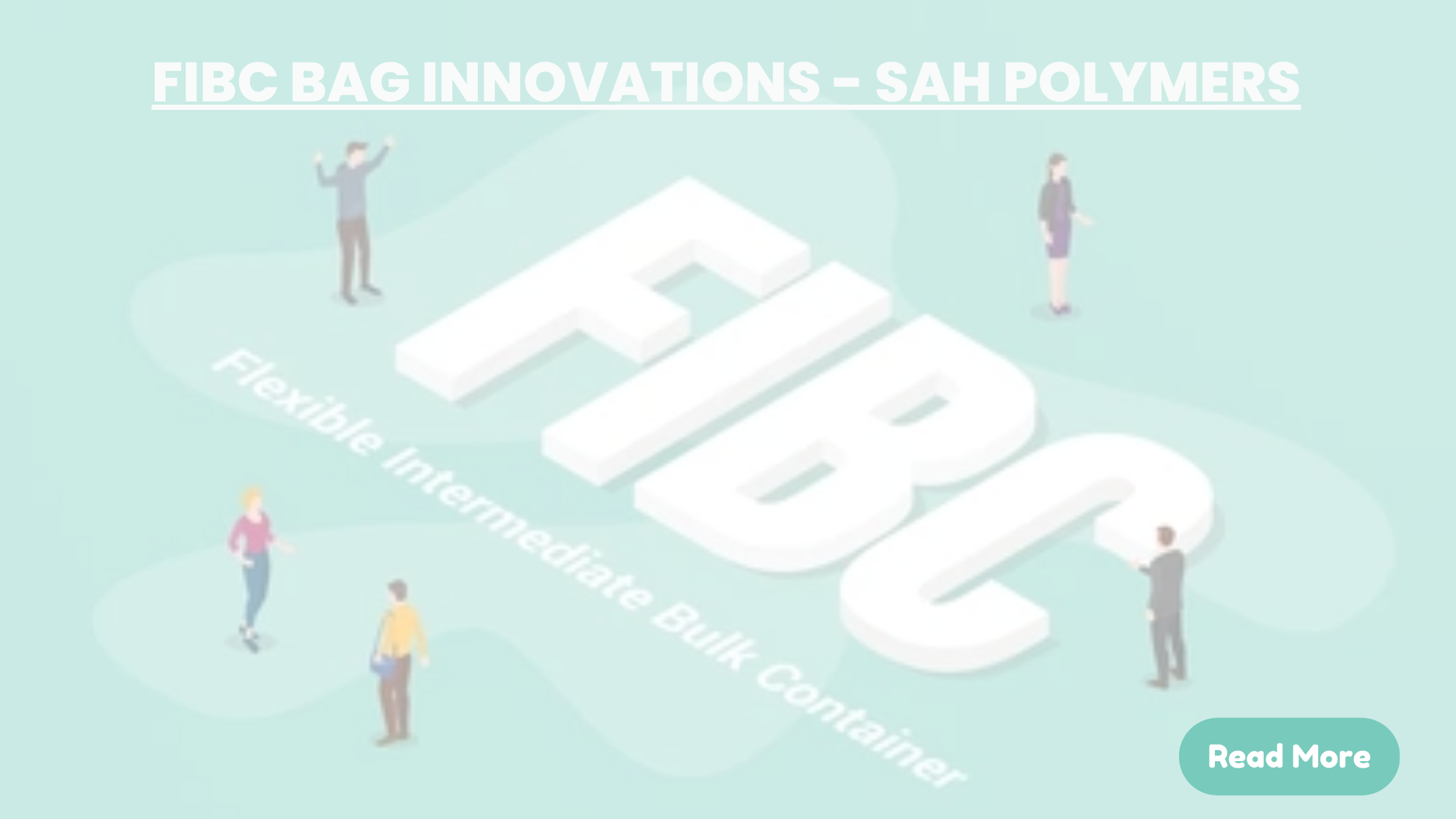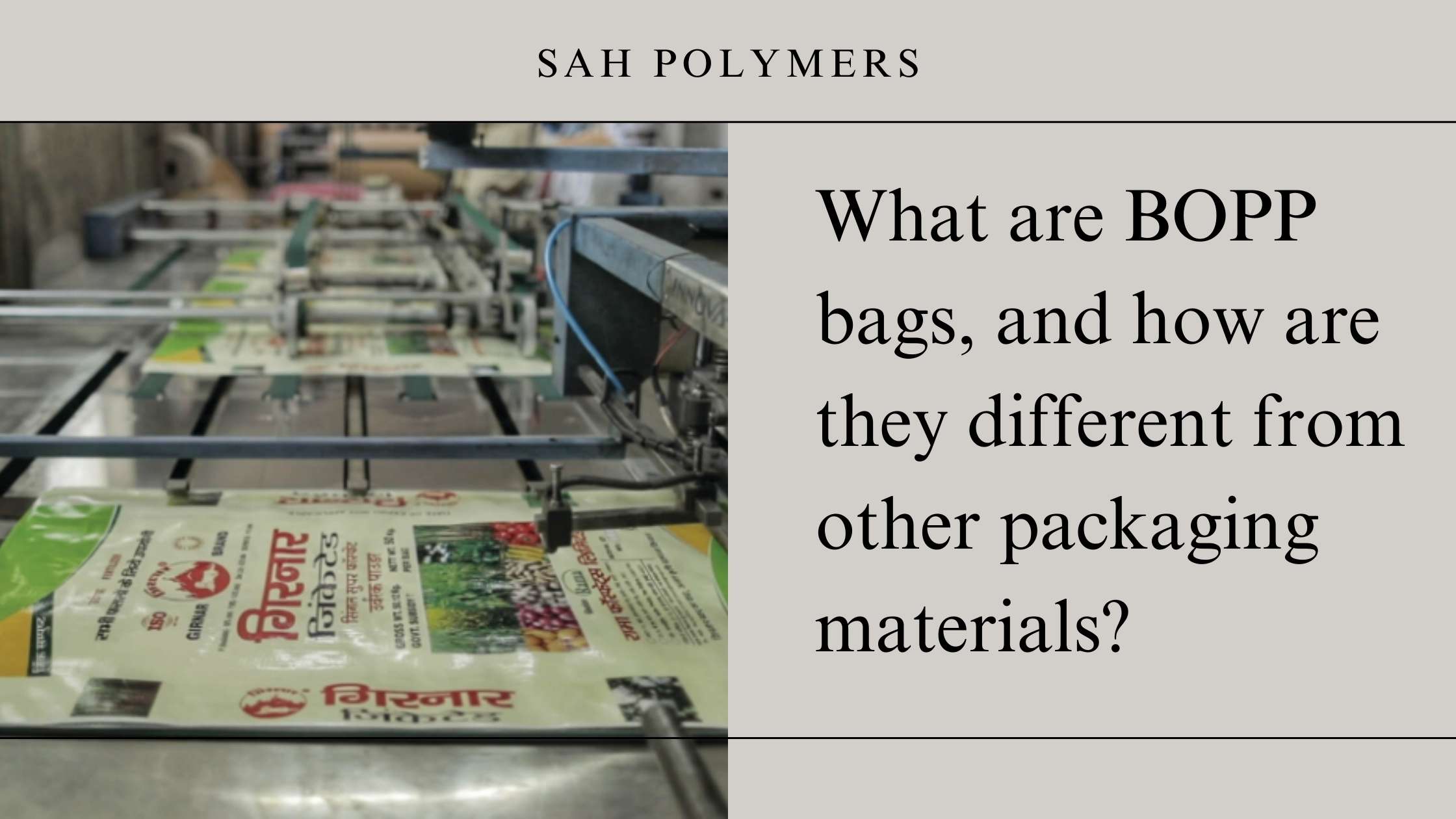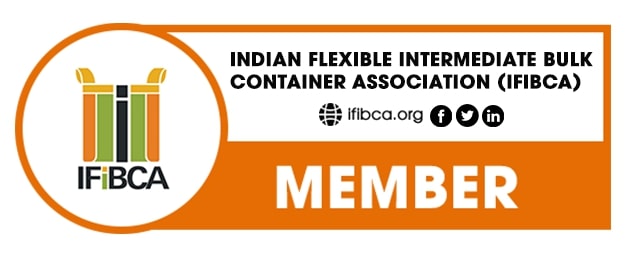The ever-growing population and their needs have given rise to different industries which in turn has given birth to different packaging solutions. One of the most commonly used and important packaging solutions is FIBC bulk bags. FIBC bulk bags are large sacks made of woven fabric that are used to store and transport dry, flowable products such as food, chemicals, and minerals. They are also known as big bags, jumbo bags, or super sacks. FIBC bulk bags are an important part of the packaging industry because they are strong, durable, and reusable. They are also a sustainable packaging solution because they can be recycled or reused. In this blog post, Sah Polymers who are fibc bag manufacturers in India will explore the benefits of FIBC bulk bags and how they can be used in different industries.
What are FIBC Bulk Bags?
Bulk bags, or FIBCs (Flexible Intermediate Bulk Containers), are large containers made of strong woven fabric that can hold dry materials in volumes ranging from about 100 to 2,000 litres. They are often used to store and transport powders, granules, and other dry bulk materials in industrial applications. One of the main advantages of using bulk bags is that they are much lighter than traditional containers such as barrels or sacks, so they can be transported more easily. They are also stackable, which helps save space.
Additionally, because they are made of fabric, they can be easily emptied and cleaned, which makes them a more sustainable option than disposable packaging options such as plastic bags. There are a few things to keep in mind when using bulk bags. First, it is important to make sure that the bag is properly secured so that the contents do not spill out. Second, because they are made of fabric, bulk bags can be susceptible to tearing if they are not handled carefully. Finally, it is important to check the bag regularly for signs of damage or wear and tear so that it can be replaced before it fails.
The History of FIBC Bulk Bags
The humble FIBC bag has a long and interesting history. These bags have been used for centuries to transport everything from grain to coal. Today, they are an important part of the packaging solution for many industries. FIBC bulk bags were first used in the early days of the trade when merchants would transport goods on the back of camels or pack them into ships. The bags were made from sturdy materials like canvas or jute so that they could withstand the journey. They were also large enough to hold a lot of material, which was essential for long-distance travel. As trade routes became more established, the need for FIBCs grew.
They were used to transport grain, coal, and other commodities across the world. In the 20th century, they became an essential part of the food supply chain as well. Today, FIBCs are still an important part of many industries. They are often used to package food, chemicals, and other materials. They are also becoming increasingly popular in the construction industry as a way to transport concrete and other building materials. FIBCs are a sustainable packaging solution because they can be reused multiple times. They are also recyclable, which makes them an environmentally friendly option for businesses and consumers alike.
The Different Types of FIBC Bulk Bags
There are many different types of FIBC bulk bags available on the market, each designed for a specific purpose. Here is a brief overview of the most popular types:
- U-Panel Bulk Bags: These bags have a U-shaped panel at the bottom, which allows them to stand upright when filled. They are ideal for storing and transporting dry, granular materials such as food products, chemicals, and minerals.
- 4-Panel Bulk Bags: These bags have four flat panels that create a square shape when filled. They are often used for storage and transportation of heavier materials such as construction debris, sand, and gravel.
- Tubular Bulk Bags: These bags are cylindrical and have a strong tubular structure. They are perfect for storing and transporting liquids or semi-liquids such as oil, lubricants, or paints.
- Pillow Bulk Bags: These bags are similar to tubular bulk bags but with softer sides that collapse when empty. They are often used for storing delicate items or those that require temperature control during transport, such as pharmaceuticals or electronic components.
- Liner Bags: These bags have a liner that helps to keep the contents fresh and free from contaminants. They are often used for transporting dry goods such as flour or sugar.
- Moisture Barrier Bags: These bags have a moisture barrier that helps to prevent the contents from becoming damp or spoiled. They are often used for transporting perishable items such as fruit or vegetables.
- Gas Flushing Bags: These bags have a gas flush that helps to preserve the freshness of the contents. They are often used for packaging delicate items such as baked goods or chocolate.
How to Use FIBC Jumbo Bags?
Bulk bags, also known as FIBCs (flexible intermediate bulk containers), are large sacks used to store and transport dry materials like food, chemicals, and minerals. They are made of woven polypropylene or polyethylene, and have a capacity of about 1-2 cubic meters. FIBCs offer many advantages over other types of packaging, such as being lightweight, stackable, and reusable. They are also cost-effective and easy to use. Here are some tips on how to use FIBC bulk bags:
- Choose the Right Size Bag: FIBCs come in a variety of sizes, from small 50 kg bags to large 1000 kg bags. Make sure to select the appropriate size for the amount of material you need to transport.
- Fill the Bag Evenly: When filling a bulk bag, it is important to distribute the material evenly throughout the container. This will help prevent the bag from tipping over or becoming unbalanced during transport.
- Use a Funnel: If you are having difficulty filling the bag evenly, try using a funnel to pour the material into the container. This will help ensure that the material is distributed evenly throughout the bag.
- Secure the Top: Once you have finished filling the bag, be sure to secure the top by tying it closed or using a closure device such as a zip tie or Velcro strap. This will help prevent spillage
The Benefits of FIBC Bulk Bags
When it comes to packaging, there are many options available on the market. However, not all packaging solutions are created equal. FIBC jumbo bags offer a variety of benefits that make them an ideal choice for many industries. Here are some of the top benefits of using FIBC bulk bags:
- Versatile: FIBC bulk bags can be used to package a wide range of products, from food and beverages to chemicals and construction materials.
- Strong and Durable: FIBC bulk bags are made from high-quality materials that can withstand rough handling. This makes them ideal for transporting heavy or fragile items.
- Cost-Effective: Bulk bags are a more affordable packaging option than other types of packaging, such as corrugated boxes or plastic containers.
- Eco-Friendly: Bulk bags can be reused or recycled, making them a sustainable packaging option.
- Takes Less Space: Because they’re flexible, bulk bags take up less space than other types of packaging when they’re empty. This makes them easier to store and transport.
Benefits of Using FIBC Bulk Bags for Seed and Grain Storage
Agricultural products such as seeds and grains require an environment that is dry and free of moisture to keep them fresh. As time passed, farmers experimented with containers that were rigidly made of plastic and metal until they came across the convenience of FIBC bulk bags. Let’s explore the reasons make bulk bags a good choice for the storage of seeds and grains.
1. Protection From the Effects of Moisture
The seeds and grains need dry storage to stop the development of mold. Mold can destroy the whole product, leading to a loss of investment. When using FIBCs, you can seal the bags filled with food to protect the contents from moisture, thus increasing the shelf time that the food item will last. You can personalize bulk bags to your specifications. bulk bag by using an internal polypropylene film or polyethene to protect the contents even more.
2. Protect Yourself From Pests
Pest infestations are commonplace in the case of grain and seeds. It could lead to the contamination of all the crops thereby reducing the profit margins. Therefore, it is essential to keep them safe from insects rodents, birds, and insects. Bulk bags made from interwoven polypropylene fibres are strong and resistant to being infiltrated by pests. This makes them the ideal storage solution to store your seeds and grains safely.
3. Easy to Handle
The process of filling storage containers with seeds and grains and seeds, transporting them and then unloading them according to the requirements, can be quite an effort, resulting in spills and over- or under-filling as well. It is possible to select bulk bags that have inlets and outlets that match your product the best and avoid the risks.
4. Space Saving
It is easy to collapse empty FIBCs and then store them. However, the structural characteristics of these bags permit neatly stacking them when they are packed with seeds and grains and seeds, requiring only a tiny amount of storage space. The addition of baffles to bulk bags can also assist in stacking them up upright, without sagging at the centre, thus decreasing the chance of the pile falling.
5. Cost-Saving
Bulk bags are the most cost-effective option for storing cereal grains as well as seeds. From the moment the harvest is taken at the farm, until it is delivered to the processor, via the market, seeds and grains are easily stored during the process in FIBCs.
Business Level Benefits in BOPP Bags
The examination of BOPP bags is clear about the many advantages BOPP bags aid in meeting the requirements of packaging and branding opportunities for companies. Based on this knowledge, below are some of the main advantages a company can reap by using BOPP bags:
- BOPP bags ensure proper storage of the contents packed inside while protecting them from water.
- The use of BOPP bags makes it easy for businesses to move their merchandise.
- BOPP bag’s triple-layer protection protects your products in the bag from extreme cold and heat.
- BOPP bag design variation allows the product to breathe as required by businesses while preserving the quality of the product.
- The dimension variant that BOPP bags seal provides flexibility in the packaging in a variety of variants at the same price.
- The use of BOPP bags BOPP bags brings down the cost of printing on bags by a significant amount while also ensuring that the product inside is not affected.
- BOPP bags bring down the packaging cost and branding by a significant amount.
- Utilizing BOPP bag packaging and branding design can be realized at one cost for an organization.
The advantages a company receives from using BOPP bags provide them with the ability to scale up their business over competitors, with extensive branding and top-quality packaging with huge economic growth. This is what makes BOPP bags extremely requested items in businesses that deal in products.
Importance of Bulk Density in Choosing the FIBC Bags
Bulk density refers to the weight per amount of powders or grams in bulk. Bulk density determines the number of substances or particles that you can put in a certain size of space, for example, the FIBC bag. If you don’t realize the bulk density of your product You could find yourself running out of bags that are FIBC before storing your product. It could even cause harm to your customers and you since bags that are strained could break. However, overestimating bulk density can result in unsatisfactory estimates of target weight per bag and potentially dangerous longer-term storage options.
A substance’s bulk density is the amount of mass per volume of granules or powders when in bulk. A substance’s bulk density determines the amount of substance that can be contained in bags safely and influences the designs. It relates to the kind of discharge options, as well as the overall size of FIBC bags. Finding the right bags made of FIBC for your storage needs isn’t always straightforward. It is essential to examine the essential aspects, like design type as well as SWL (safe working load) to ensure that the bag is in line with the size you want and can handle the load of your particular items.
Mistakes You Should Avoid While Using Fibc Bags
Choosing the right packaging bag for your product is like choosing a shirt with a shape. As with any other option, you can make mistakes when choosing the right big package. Common mistakes to avoid are:
1. Wrong Size and Shape
The most common mistake packers make is choosing the wrong size and shape for a large FIBC bag. Recon FIBC bags come in different shapes and sizes to suit your needs. For example, construction companies need FIBC bags to transport and store large amounts of soil or sand, but they still need small FIBC bags to facilitate construction and long-term storage. However, bean exports are not opened and stored together for long periods, requiring large FIBC bags. Therefore, you also need to determine the exact shape of the material you need to store.
2. The Order Quantity and Quality Are Incorrect
Two important factors influencing a purchasing decision are the quantity and quality of the products ordered. Buying FIBC bags in bulk can save you money, so you need to find the perfect balance between how much you need and how much you incur. No need to buy extra baggage right away for a low price. It’s better than paying extra for your purchase. Likewise, you may need an FIBC bag of a different quality to store chemical waste rather than the FIBC bag needed to store rice and wheat. Buyers often confuse the two and avoid which one can save a lot of money.
3. Insufficient Recycling Management
Plastic is sustainable because it is recyclable. However, if the polymer is made up of several polymers, the recoverability is high, and if the polymers are not separated, they cannot be recycled. However, Envy produces Super Recon bags that contain a homopolymer called “raffia grade polypropylene.” A special technique called “texture management” makes it possible to create products of different hardness and softness from the same homopolymer. a plastic homopolymer violates the recyclable quality of plastics and causes economic losses that harm the environment. Therefore, you also need to determine the exact shape of the material you need to store.
4. Choose the Wrong Supplier
For a constant supply, you need a reliable FIBC bag supplier like Emmbi, which has a high reputation and rich experience in manufacturing high-quality FIBC bags for overseas customers. Barukubaggu is the first Indian company to achieve ISO9001 certification for the design and manufacture of various polymer fibre products, Emmbi operates in around 56 countries/regions on 5 continents. It can then collect knowledge about the landscape and apply it to the design aspects of the product design and manufacturing processes. Even at low prices, choosing an inexperienced or established international supplier carries the risk of damaging the company’s reputation.
Conclusion
In conclusion, FIBC multi-purpose bags stand tall as an important and sustainable packaging solution in various industries. Understanding their types, the importance of versatility in selection, and profitability shows versatility and eco-friendliness. As a green method of transportation and storage, FIBC products now effectively reduce waste but additionally increase throughput but to maximize profitability it is important to overcome the common errors of incorrect handling and storage. The adoption of high-volume FIBC products is consistent with sustainable practices, sales performance and environmental responsibility. By integrating these sustainable, reliable resources into operations, businesses can look forward to a future where efficiency, sustainability and profitability are integrated which is not difficult.


